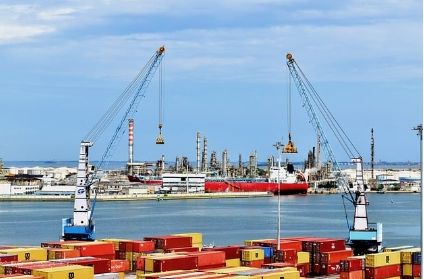What is a Freight Forwarder and How Do They Facilitate Global Trade?
A freight forwarder is a key player in the logistics and supply chain industry, acting as an intermediary between shippers and transportation services to ensure the smooth and efficient movement of goods. Freight forwarders manage the intricate details of shipping logistics, from arranging transportation to handling documentation, customs clearance, and warehousing. This article will explore the role, functions, and benefits of freight forwarders in international trade.

What is a Freight Forwarder?
A freight forwarder is a company or individual that arranges the transportation of goods on behalf of shippers. They do not typically own the transport equipment; instead, they contract with carriers, such as shipping lines, airlines, trucking companies, and rail operators, to move cargo. Freight forwarders leverage their expertise and networks to provide a range of logistical services that facilitate international and domestic trade.
How Do Freight Forwarders Work?
Freight forwarders operate by coordinating various aspects of the shipping process, which involves several key steps:
1. Consultation and Planning: Freight forwarders consult with clients to understand their shipping needs, including the nature of the goods, preferred delivery times, and budget constraints.
2. Transportation Arrangement: They select the most efficient and cost-effective transportation methods and routes, whether by sea, air, rail, or road.
3. Documentation Handling: Freight forwarders prepare and manage essential shipping documents, such as bills of lading, commercial invoices, and export/import licenses.
4. Customs Clearance: They handle customs procedures, ensuring that goods comply with all regulatory requirements and that duties and taxes are paid.
5. Cargo Insurance: Freight forwarders can arrange for insurance to protect against potential losses or damages during transit.
6. Warehousing and Distribution: They may offer warehousing solutions and manage the distribution of goods to final destinations.
Key Services Provided by Freight Forwarders
• Freight Consolidation: Combining smaller shipments from multiple shippers into a single container to reduce shipping costs.
• Tracking and Tracing: Providing real-time updates on the status of shipments and estimated delivery times.
• Packaging and Labeling: Ensuring goods are properly packed and labeled to meet international shipping standards.
• Supply Chain Management: Offering comprehensive management of the supply chain, from origin to destination.
Benefits of Using Freight Forwarders
1. Expertise and Knowledge: Freight forwarders have in-depth knowledge of international shipping regulations, documentation requirements, and best practices.
2. Cost Efficiency: By leveraging their networks and volume discounts, freight forwarders can often secure more favorable rates than shippers could on their own.
3. Time Savings: Handling logistics, documentation, and customs clearance can be time-consuming. Freight forwarders streamline these processes, allowing businesses to focus on core operations.
4. Risk Management: Freight forwarders help mitigate risks associated with shipping, including handling delays, damages, and regulatory compliance issues.
5. Flexibility and Scalability: They offer scalable solutions that can be adjusted based on the shipper’s needs, whether for small or large-scale shipments.
Challenges Associated with Freight Forwarders
• Cost Variability: The cost of freight forwarding services can vary based on the complexity of the shipment, distance, and additional services required.
• Dependence on Third Parties: Freight forwarders rely on carriers and other service providers, which can sometimes lead to delays or service issues beyond their control.
• Regulatory Compliance: Navigating the complex regulatory environments of multiple countries can be challenging, requiring constant updates and compliance checks.
How to Choose a Freight Forwarder
• Reputation and Experience: Look for freight forwarders with a strong reputation and extensive experience in your industry and target markets.
• Service Range: Ensure they offer the specific services you need, from transportation and warehousing to customs clearance and insurance.
• Global Network: A wide network of agents and partners can provide better coverage and more reliable service in various regions.
• Technology and Communication: Choose a forwarder that uses advanced tracking and communication technologies to provide real-time updates and efficient service.
Conclusion
Freight forwarders play a crucial role in global trade by managing the complexities of shipping and logistics. Their expertise, networks, and comprehensive services enable businesses to navigate international trade efficiently, reducing costs and ensuring timely delivery of goods. By partnering with the right freight forwarder, businesses can optimize their supply chain operations and focus on growth and competitiveness in the global market.
Related articles

 WeChat of CBiBank
WeChat of CBiBank